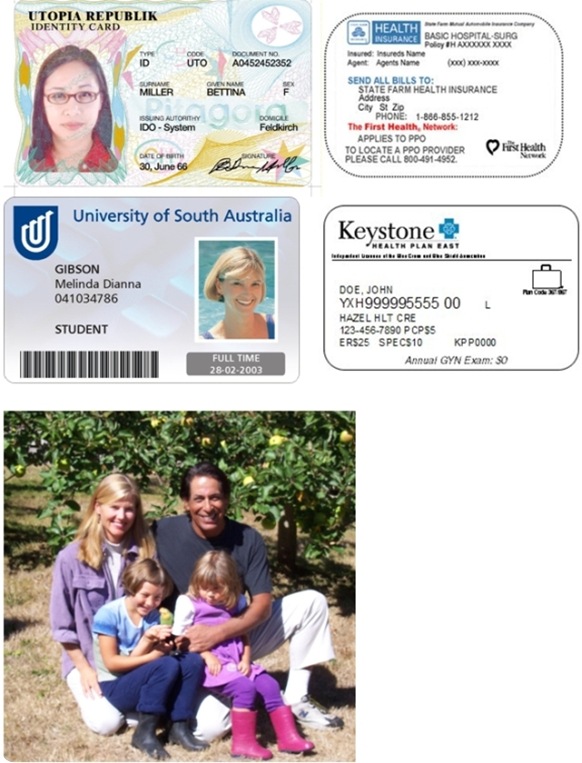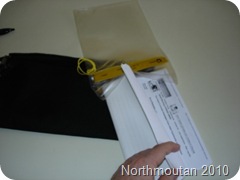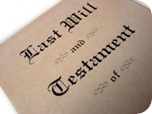Well, as the folks who were similarly prepared when they were hit by Katrinia found out, they were still in trouble. Not only from the intensity of the destruction and the duration of loss of living facilities and jobs, but also due to the separation of family members from each other.
Some family members were injured and taken to a medical facility - somewhere. Children were taken to safe housing - somewhere. Senior adults were stranded or taken to temporary housing - somewhere. Some did not survive and when their bodies were finally retrieved, they were taken - somewhere - and few had identification.
 Unfortunately, the initial disaster was just the start of the grief in the lives of Katrina victims. As time passed after the initial days, families tried to find each other and gather at the same location. Young children were protected by security. They wouldn't be released to just anyone claiming to be their parents or legal guardian. You needed proof that they were your kids
Unfortunately, the initial disaster was just the start of the grief in the lives of Katrina victims. As time passed after the initial days, families tried to find each other and gather at the same location. Young children were protected by security. They wouldn't be released to just anyone claiming to be their parents or legal guardian. You needed proof that they were your kids.
Frequently, the parent(s) were severely injured and couldn't search for their children. Even if the kids could tell rescuers their parents names, it was a very hard and long term process to match the families members with each other.
A family photo in the emergency kits with each person identified on the back would have helped everyone in the quest to find other family members.
Flash forward a few weeks or more.
Mom or Dad go to a bank hoping to withdraw money from their account. So do an army of thief's who are trying to rob every penny they can in the confusion created by the devastation.
"I'm sorry sir or ma'am. Your account shows that it you have withdrawn all your money -- or -- we need your account information and photo I.D." "We need to see a recent statement." - to prove you own the account, that you are who you say, etc. Without it, retrieving your money may be difficult to impossible.
"We need medical care. We have insurance." "Who is your insurance carrier? May I see your insurance card please?"

The family is together and safe but wants to get back to as much of a normal life as possible. Water has receded and even though the house is in ruins, it can be rebuilt. All you needed to do is call your insurance agent, just like they'd seen on television over and over.
"What is your policy number?" "I don't' know. My house was destroyed! You know me. I've paid premiums to your company for years." The insurance agent knows that they can't proceed without proper records and identification but telling the devastated policy holder is tough. "I'm sorry, but we can proceed until you can provide the information needed.?
 Then finally make it to your home to start retrieving the few possessions that have survived. A police officer or member of the military sees you and asks for proof that you own the property and that you aren't a looter. Just because your drivers license says you lived at this approximate address (there aren't and surviving address numbers anywhere) four years ago when you renewed it, that doesn't mean you still have any claim to the property. "I need to see a recent utility bill, lease, deed, etc., before you will be allowed to touch anything on this site."
Then finally make it to your home to start retrieving the few possessions that have survived. A police officer or member of the military sees you and asks for proof that you own the property and that you aren't a looter. Just because your drivers license says you lived at this approximate address (there aren't and surviving address numbers anywhere) four years ago when you renewed it, that doesn't mean you still have any claim to the property. "I need to see a recent utility bill, lease, deed, etc., before you will be allowed to touch anything on this site."When you go to the FEMA tent hoping to receive federal assistance to rebuild your life, if you don't have all of these documents, you don't have a chance of receiving help. In fact, local government will work against any effort you make to clear your property and rebuild. As far as they are concerned, you are a thief, a squatter, a bad person.
Every adult emergency kit should include a copy of important documents...
- Government issue photo ID
- Insurance card
- Special medical needs ID's and documents
- Copies of recent bank and financial statements
- Copies of account numbers from utility bills
- A copy of your insurance policies
- A copy of deeds, leases, etc.
- A copy of your will and living will ( you may die in an emergency )
- A copy of your notarized last wishes for burial including any burial insurance policy, burial plans, cemetery plot ownership.
- A recent photo of your family with each person identified on the back of it - in permanent ink
- Names and contact information of in-state and out-of-state contacts
- Employee card
 Think through your own situation. If you had to prove who you are in every step of restoring your life and family, what documents would you need? You may be surprised if you make an thoughtful inventory.
Think through your own situation. If you had to prove who you are in every step of restoring your life and family, what documents would you need? You may be surprised if you make an thoughtful inventory.Put the copies of your documents in a waterproof / water resistant case that you can easily open repeatedly over time when you replace the old copies with new copies.
Hide the documents in your emergency kit. Your life is in that bag. A thief would love to get their hands on it.
If you have an opportunity to talk to anyone who has been severely impacted by a disaster, ask them what they would have in their documents kit now. The list may be a lot longer than the one listed here.
No comments:
Post a Comment
Note: Only a member of this blog may post a comment.